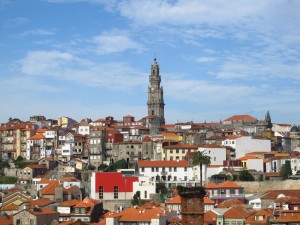Portugal’s Fascinating Solution to the “War on Drugs.”
by Z Zoccolante
Last week, I gave a brief history on America’s infamous “War on Drugs,” a criminalization policy which other nations adopted. Catch up with last week’s article and audio here.
As we discussed, this 40 year, 1 trillion dollar war has been a failure. We have more people in prison now than ever, and drug cartels are the ones that benefit. We also talked about drug addicts as being sick and needing help and instead of punishing them we may want to create a different system that helps people heal. Enter Portugal.
Portugal, a brief history:
In 1974, Portugal broke free from half a century of military dictatorship. With this new freedom the drug epidemic first began. In the year 2000 Portugal had one of the worst problems in Europe with 1% of their population addicted to heroin, and the highest drug related AIDS rate in the European Union. Portugal was spending 98 million yearly on their anti-drug crisis.
Listen to or download the podcast of this blog.
Hidden mp3 player
To become a member, click on REGISTER on the sidebar to the right!British journalist and author Johann Hari, of Chasing the Scream: The First and Last Days of the War on Drugs, summarized what happened next.
He says that the Prime Minister brought together a group of scientists, doctors, and judges and told them to go out and study this, and that whatever the panel agreed upon they would do.
The panel studied for about 8 months and came back with their solution to decriminalize ALL drugs AND to use all the money they were spending criminalizing drug addicts to instead reconnect drug addicts to society.
In 2001, Portugal decriminalized (not legalized), all drugs. The new law says that you’re allowed to carry on your person roughly a ten-day supply. The drug quantizes that you can legally purchase and carry are:
One gram of heroin, two grams of cocaine, 25 grams of marijuana leaves or five grams of hashish. MDMA — the active ingredient in ecstasy — and amphetamines — including speed and meth — can also be possessed in amounts up to one gram. (source)
To comply with the UN, the substances themselves are still illegal (outside of the arbitrary “legal” limitations), but Portugal has stopped prosecuting users as anything more than a misdemeanor.
The police still search for drugs and if you’re caught as having more than the “legal” weight limit, you’re tried as a dealer and charged in court. Otherwise you’re told to report within 72 hours to a committee called the “warning commission on drug addiction.”
The commission, which includes a social worker and a psychologist, will speak to the person offering warnings, reminders, and invitations to rehab. 70% of the commission’s 1,500 cases a year are for marijuana.
This decriminalization process has resulted in an overall decline in drug use with people ages 15-24, who are most at risk for beginning a drug habit. Also, the number of people who try a drug and continue using has also dropped. Injecting drug use is down 50%. Currently, 40,000 people are being treated for drug abuse.
Journalist Hari, also talks about how Portugal seeks to get people connected back in society. Money once used to punish addicts now goes towards helping them. If Joe wants to get a job at an auto body shop, the government will say to the owner of the shop, “If you agree to hire Joe, we’ll pay for a portion of his salary for the first x months.”
People feared that decriminalizing all drugs would lead to mass drug use, and there are still some people 15 years later that don’t agree with the system. Still, most people can’t deny its success.
João Figueira, who led the opposition to the decriminalization, has stated, “Everything I said would happen didn’t happen.”
For 40 years, we’ve tried the war on drugs from a model of criminalization. What if we tried something new from a model of reconnection and compassion. If connection is really the key to heal and stop addiction, then we’ve been forging our way forward with a model that no longer serves us. We’ve been going into a bakery trying to get a hammer, and getting mad that all they have is bread.
A wise man once said, “Insanity is doing the same thing over and over again and expecting different results.”
Perhaps it’s time to try another way.
Resources:
‘This Is Working’: Portugal, 12 Years after Decriminalizing Drugs
14 Years After Decriminalizing All Drugs, Here’s What Portugal Looks Like
Ten Years After Decriminalization, Drug Abuse Down by Half in Portugal
The Likely Cause of Addiction Has Been Discovered, and It Is Not What You Think
Agenda: The 100-year war on drugs has failed — does Portugal have the answer?

4 August, 2015
Great article. I totally agree if something doesn’t work try a different approach. I like the idea of reconnection and compassion. I wonder about people all the time that I see homeless and on the streets. What kind of a childhood they had, how did they become this way. I feel sad for them and wish something was implemented to change and help those with addictions and homelessness. Really think after all these years of the war on drugs that they didn’t try a different approach. Someone knew what they were doing in Portugal.
4 August, 2015
Thank you. We tend fear the unknown, which is why Portugal is such a great example. They’ve already had this system in play for 14 years, and I think there’s a lot that can be learned. The fact that 40,000 people are currently in rehab is hopeful for me, because it shows that people do want to change, sometimes they just need a little help and hope. :)